Journal Boards
Editorial Board
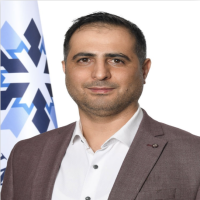
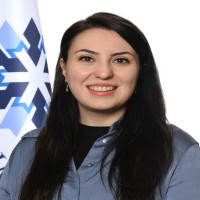

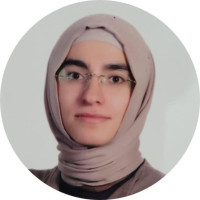
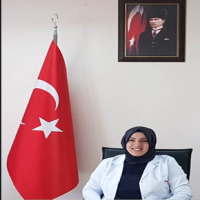
Scientific Board
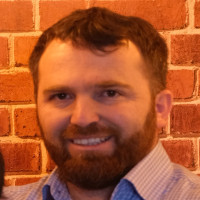

After graduating from Boğaziçi University, Dr. Karataş completed his Masters and PhD degrees at Yeditepe University and Istanbul University Aziz Sancar Institute of Experimental Medicine, respectively. He worked as a research assistant for 2 years at IGBMC in Strasbourg, France, investigating the epigenetic background of nervous system development in D. melanogaster models, and as a postdoctoral associate at Baylor College of Medicine, USA, he conducted a funded research program in prostate cancer signal transduction and molecular genetics. He currently directs his laboratory, focusing specifically on head and neck carcinogenesis. He was a member of the advisory board of the TÜBİTAK Health Sciences Research Group between 2021-2024 and he is a co-founder of Ecotech Biotechnology, which has been producing innovative research products since 2018.


 Web
Web
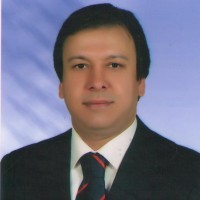
My research relates to developing computational models and mathematical tools for analyzing pre-clinical and clinical data to better understand complex biological systems. Using the power of computational modeling, I search for new ways of understanding the mechanism underlying biological observations.
My research is particularly focused on the electrophysiological properties of excitable cells, tissues, and organs, with a deep interest in cardiac electrophysiology and heart rhythm disorders, such as atrial fibrillation (AF). I develop qualitative models based on physiological knowledge to explain or verify mechanisms underlying complex biological phenomena (such as AF), as well as data-driven models to explain experimental observations. I specifically focus on the complex interactions and feedback mechanisms, which regulate cell and tissue-level electrophysiological remodeling. I investigate how these feedback mechanisms are naturally employed to sustain homeostatic state and functionality, and more importantly, how/why these mechanisms fail and give rise to the emergence of pathological conditions. I study these mechanisms to understand and quantify the electrophysiological impairments, as well as propose new prevention and treatment strategies for pathological conditions. I also use computational models to explore patient-specific disease progression trajectories.
Statistics Editor
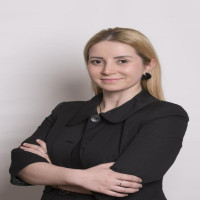
Lisans, yüksek lisans ve doktora eğiti mini Karadeniz Teknik Üniversitesi’nde tamamladıktan sonra 2019 yılında Doktor unvanını aldı. istanbul Atlas Üniversitesi'nde Öğretim Görevlisidir. Alanıyla ilgili konularda çok sayıda ulusal ve uluslararası makale, bildiri, kitap ve kitap bölümü yazarlığı bulunmaktadır. Tarım ve Orman Bakanlığı ile BAP projelerinde uzun yıllar Araştırmacı olarak görev yapmıştır. TÜBİTAK projeleri kapsamında doktora sonrası akademik çalışmalarını devam ettirmektedir. Uluslararası bilimsel dergilerde editör ve hakemlik görevlerini sürdürmektedir. Eş zamanlı olarak, Çevre, Şehircilik ve İklim Değişikliği Bakanlığı kapsamında proje bazlı çalışmalarına devam etmektedir.
Profesyonel kariyer hayatına Ar-Ge ve Tasarım Merkezi kurulum ve sürdürülebilirliği ile proje yazma ve yönetme konularında danışmanlık hizmetleri vererek başlamıştır. Bu süreçte ekip ve proje yönetimi alanlarında geniş bir tecrübe edinmiş ve şirketlere sürdürülebilir inovasyon konusunda stratejik rehberlik sağlamıştır. Ulusal düzeyde üniversitelerden alınan Proje Süreç Yönetimi Sertifikası bulunmaktadır. Yönetim danışmanlığı kapsamında hibe ve fon kaynaklarının temin edilmesi / etkin yönetilmesi hususunda hizmet ve eğitimler vermektedir. TEKNOFEST Proje Değerlendirici Kurul Üyesi olarak ulusal araştırma ve geliştirme çalışmalarının değerlendirilmesi aşamasında katkı sunmaktadır. 2023 yılında Fenerbahçe Üniversitesi tarafından düzenlenen Ar-Ge ve İnovasyon Zirvesi’nde Yürütücü Komisyon Üyeliği görevini tamamlamıştır. Hâlen TÜBİTAK tarafından 1831 – Yeşil İnovasyon Teknoloji Mentörlük Çağrısı kapsamında akredite edilen IQ Partners şirketinde Yönetim Kurulu Üyesi ve Genel Müdürü olarak görev yapmaktadır.
İş Sağlığı ve Güvenliği C Sınıfı serti fikasını aldıktan sonra çalışma alanlarını genişletmiştir.
TS EN ISO 14064-1:2019 Hesaplama Odaklı Kurumsal Karbon Ayak İzi Eğitimini tamamlayarak çalışma alanlarını multidisipliner alan düzeyine taşımıştır. 2024 yılında Yeşil İş Dünyası Platformu tarafından organize edilen Sürdürülebilirlik Konferansı-2024 isimli konferansta Düzenleyici Komisyon Üyeliği görevini tamamlamıştır.
Uluslararası Bilgi Güvenliği Baş Denetçisi (ISO 27001) unvanını alarak bilgi güvenliği alanında çalışmalarını sürdürmektedir. Bu kapsamda bilgi güvenliği standartlarını, kurum ve kuruluşların bilgi güvenlik risklerini, tehditleri ve açıklarını sistematik olarak denetleme süreçlerinde yer almaktadır.
Profesyonel fotoğrafçıdır ve kendisine ait 5 farklı kişisel/ortaklı fotoğraf sergisi bulunmaktadır.


